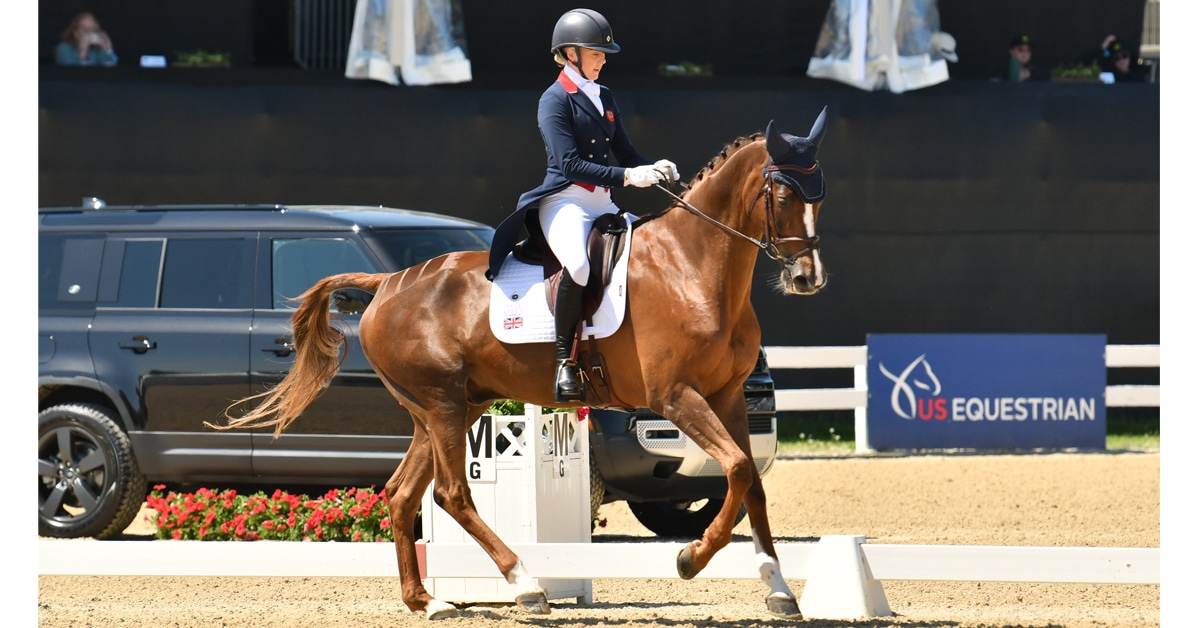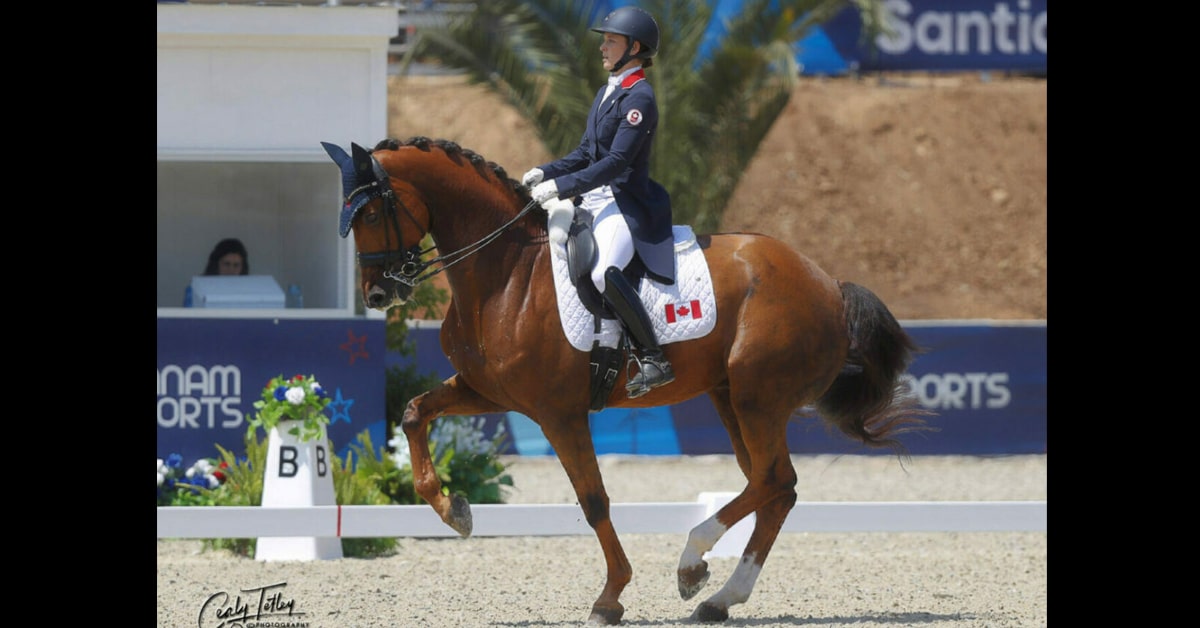There has been a lot of conversation surrounding Canadian equestrians and their plans for the upcoming winter show season. For the past several decades, hundreds of Canadian competitors and their horses have headed south to show grounds in Florida, South Carolina, California and other American destinations. The reasons are many; keeping yourself and your mounts fit, competing all year round gave you an edge when you return, the level of competition in the US honed and tested your skills, and let’s not forget the palm trees and sunshine.
But with the ongoing Canada-USA border closed for the foreseeable future due to the Covid-19 pandemic, it’s unclear how many Canadians will ship horses south this winter. There’s been no word from the Canadian government on whether athletes would be considered “essential travel” come January 2021, and with no crystal ball on hand and the world upside down, no one wants to predict what may or may not happen to change the current state of things.
However, judging by the alarm bells sounding from global infectious disease experts, the pandemic is going to last well into 2021. So, what choices do our serious competitors have when they are forced to remain north of the 49th this winter?
While he can’t do much about the weather, Canadian international showjumper and entrepreneur Keean White is ensuring his fellow countrymen and women have access to top level competition in Ontario this winter.
Under the banner of Angelstone Tournaments, which celebrates its tenth anniversary this year, White and his team have been working to create an 11-week winter show series that will be held indoors in Mississauga in an as-yet undisclosed facility. “We’ve been looking at it for the last four years and we decided this year was the time to go for it with what was happening with the pandemic,” White explained.
The Angelstone Winter Tour will run December 8, 2020 through February 21, 2021. While the specifics are still being ironed out, White said that the Mississauga venue is 125,000 square feet with 250 stalls all under one roof. The goal was to create a similar experience to the World Equestrian Centre (WEC) series in Wilmington, Ohio, which is held in a massive indoor complex and is approximately a 7-hour drive south of the border.
White has also secured the financial support of local government and corporations and the Winter Tour will offer $600,000 in prize money. He is also working on a 3* event for the December launch of the series. White also wanted to host the Canadian Showjumping Championship, which is normally put on by the Royal Horse Show, but this year the entire agricultural fair was cancelled due to Covid-19. Equestrian Canada turned down White’s request to stage the event at his venue.
“I always thought we should have some sort of an indoor circuit, and it would require some innovative thinking and a facility that could do it at a high level and house enough horses,” says Ontario-based show jumping rider and trainer Chris Delia. “Now Keean is doing it. I’m really excited and that I hope it has a good future and provides an alternative for Ohio and Florida for Canadians.”
Delia admits he stopped taking clients to Florida three years ago after competing down there every winter for 15 seasons. For starters, his kids reached school age, and as well, he didn’t have enough clients that wanted to go. “My core group of clients, the very serious clients, are the drivers of the schedule,” he explains. “They were all university age and it was too disruptive. Florida demands two to three months, if not more; it was a logistical nightmare for these people.”
The alternative up until this year was WEC. “Ohio was the solution. You could go for one or two weeks then be home. You don’t have uproot your life,” he says. “All the horses that went were well-prepared for the show season at home.” One year, Delia and his clients didn’t compete over the winter. “It wasn’t good,” he admits. “I recognized the need to do something in the winter.”
The Angelstone Winter Tour will have all the rated hunter divisions including cross-rail hunter, and the jumper division will likewise be inclusive to all levels, ranging from cross-rail to the .9m to grand prix.
White also is making sure to include a Silver level event as well. “We did one Silver show during our summer series and 250 horses came; we increased it to four Silver shows and got 450 entries,” he says. “It’s grown exponentially, and they want to be part of the tour. It gives a lot of grassroot competitors access to the best venues. We’re trying to create a bridge for them to the A-circuit.”
If the Angelstone Winter Tour is a resounding success ‒ and there is no reason to assume otherwise ‒ this may change the hunter/jumper competitive landscape for years to come. Many Canadians may prefer to stay home to compete; it’s cost effective and less disruptive to daily life.
“I think snowbirds are snowbirds, they will want to do Florida and there will always be a place for barns who want to do that,” says Delia. “But I think for a lot of Canadians it’s not only the budget, it’s the logistics, school, careers and job that makes Florida tough. A winter show series is going to provide an opportunity for pros to get their barns out and enter the show realm in the winter. It’s going broaden horizons for show people here in Canada.”
White said that he’s had interest in his Winter Tour from riders as far away as British Columbia and Alberta, and he’s also working on hosting a dressage tournament during the Winter Tour. All of this interest from various factions and parts of the country proves the demand for a high-quality winter horse show circuit in Canada is there.
“During our summer series, Angelstone has between its Silver and Gold shows about 1,500-2,000 horses,” White says. “I’m going to estimate that of these only about 25 per cent go south for the winter. If we can give the other 75 per cent the option of not having the expense to travel, then we are giving them the option to invest in training, competing and buying more horses to grow the sport.”
More from News:





